1968 Jaguar XKE Restoration
Article by Mark Trotta
As beautiful today as when it was introduced in 1961, the Jaguar E-Type was designed by aerodynamics engineer Malcolm Sayer. It was a huge sales success, with the majority of cars shipped to America, where they were sold as the Jaguar XKE.
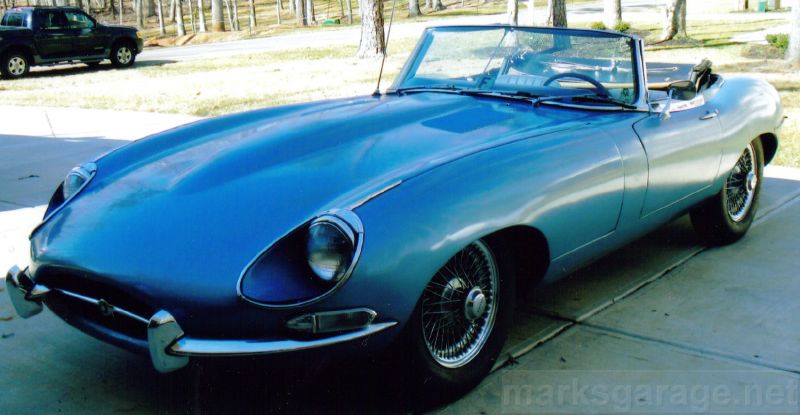
Aside from the engine and transmission, the XKE was a completely new car.
Jaguar XKE Series 1
The original XKE was offered in two models, an open-air roadster and fastback coupe, the former featuring a side-opening rear hatch. Glass-covered headlights were neatly tucked into the fenders. The front-opening hood curves slowly down to the small oval air intake.
With a sticker price of $5,595, the XKE was slightly more expensive than a Corvette, and half the price of a Ferrari.
Jaguar XKE Series 1-1/2
During 1967/68, the transitional Series 1-1/2 cars were brought about to comply with U.S. safety regulations. The biggest exterior change was the loss of the original glass-covered head lamps, to a more upright and exposed style.
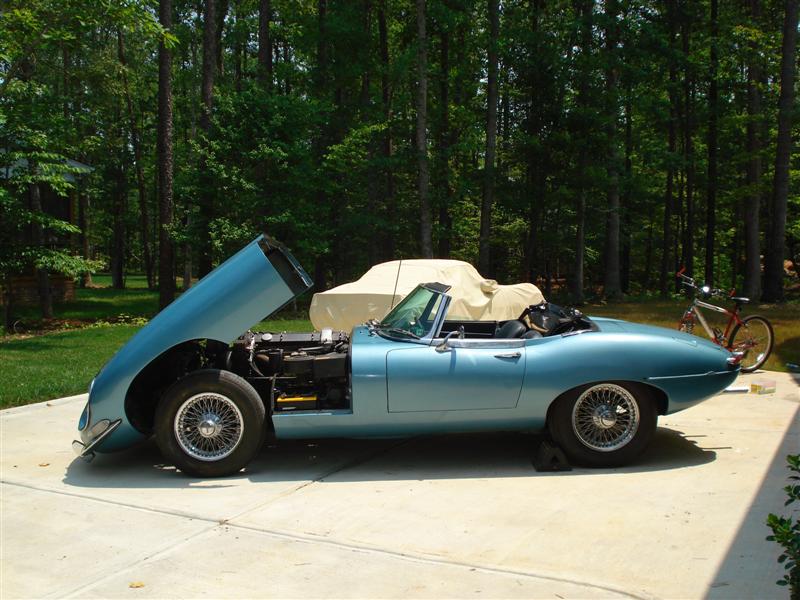
Under the hood, dual electric fans were added to help cooling.
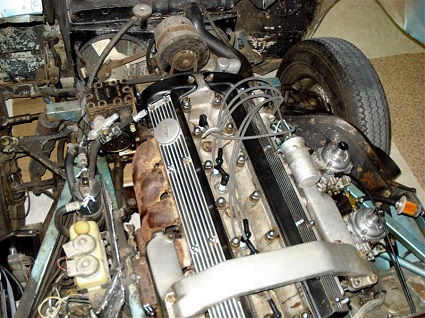
The original smooth polished dual cam covers were now ribbed and painted.
**********************
Notes and Misc
All 4.2 litre powered cars were negative ground. Some of the early 4.2L cars had a warning plate, stating that the car was negative ground.
Jaguar XKE bodies are partially unitized, and each panel functions both for appearance and support. Places to check for rust are under the rear fenders, along the sills, under the spare tire, and under the carpets.
All XKE's have 4-wheel discs, and the rear ones are inboard. This means any serious work on the rear brakes requires lowering the rear axle.
**********************
The Purchase
From the single picture posted on the internet ad, this Jag looked clean - a blue-on-blue roadster with original factory air-conditioning and wire wheels. It was being sold in non-running condition.
When we called the seller, he said he'd already received dozens of calls, mostly from out-of-state, but since we were closest in distance it was offered to us first.
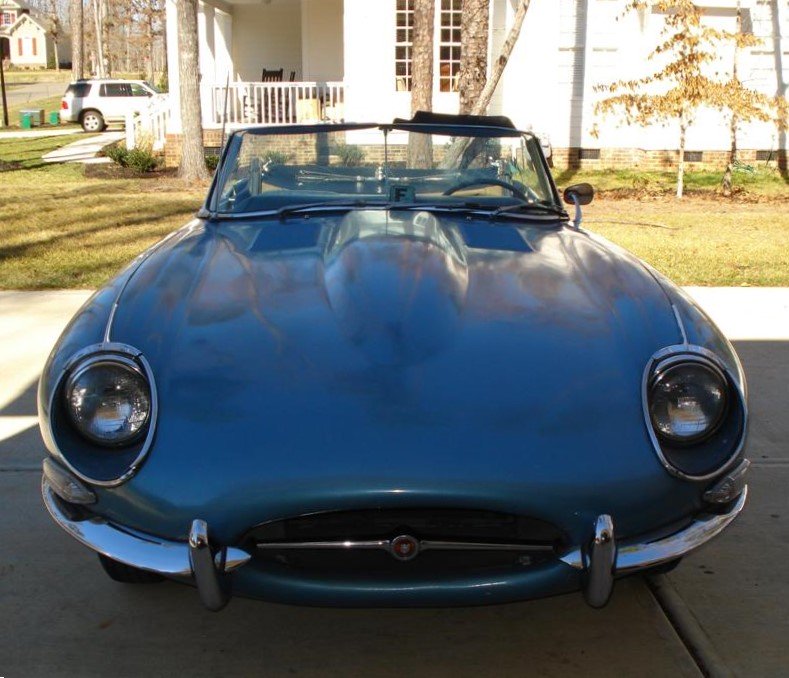
With directions in hand, I hopped into my truck and arrived at the address several hours later. I was immediately impressed with the Jag's condition; the body was straight and rust-free, and still had the original paint. No rust, no dents, a few minor scratches, and perfect blue-leather seats.
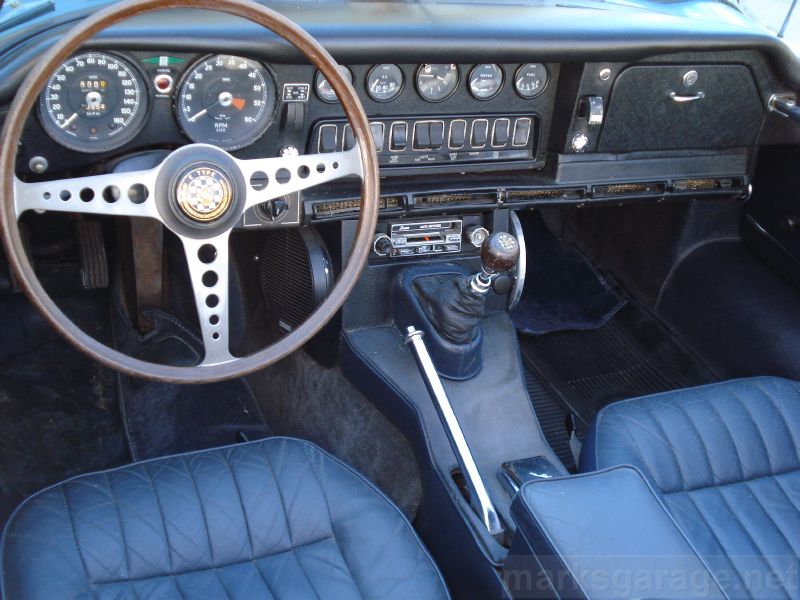
Everything looked intact, but the car hadn't run in 13 years. My gut feeling was it just needed some TLC.
**********************
Although I had no previous experience with British cars, I decided to take a chance and by this non-running Jag. Several factors contributed to my decision. First, the car had been stored in a clean, organized garage in a beautifully-kept house. Second, the seller was not only friendly and informative, he was genuinely concerned about the car. There was no guarantee that the engine would run, but I had a good feeling about the car. The Jag was purchased and trailered home.
**********************
Carburetor Rebuild
When an old car sits in storage for years, any gasoline in the carbs will turn to varnish. I began the XKE project by disassembling, cleaning, and rebuilding the two Zenith-Stromberg carburetors.
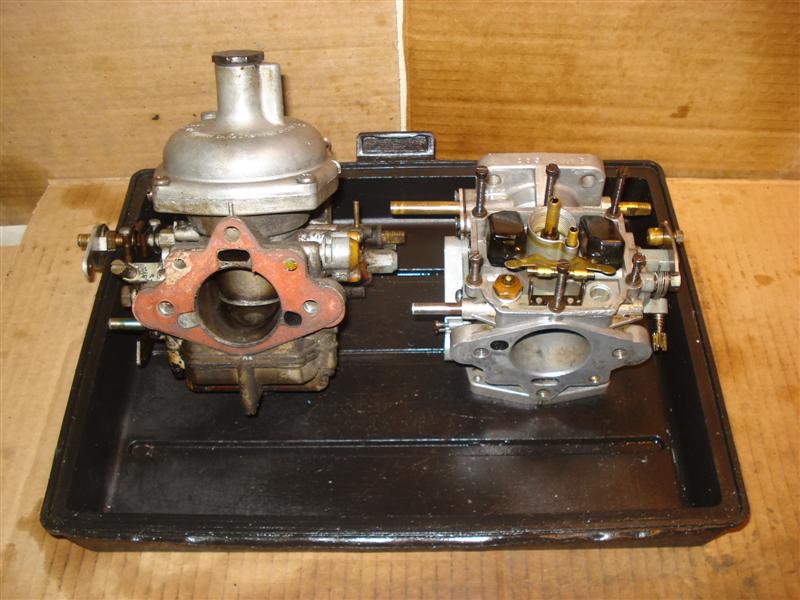
It's nice to have a second carburetor to use as a reference as you're disassembling the other.
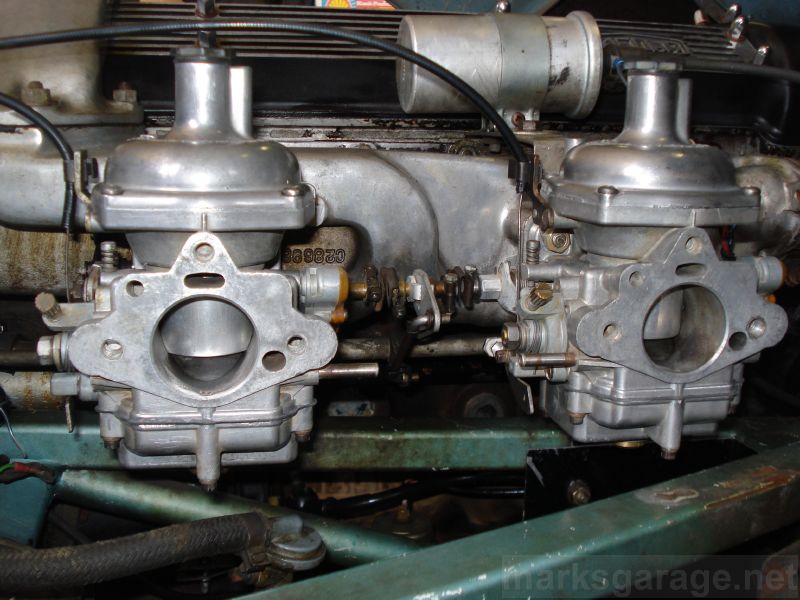
Read: Zenith-Stromberg Carb Rebuild
Fuel System
From the rear of the car, the metal fuel lines were blown out with compressed air. The electric fuel pump (which sits in the trunk) was replaced with a new unit.
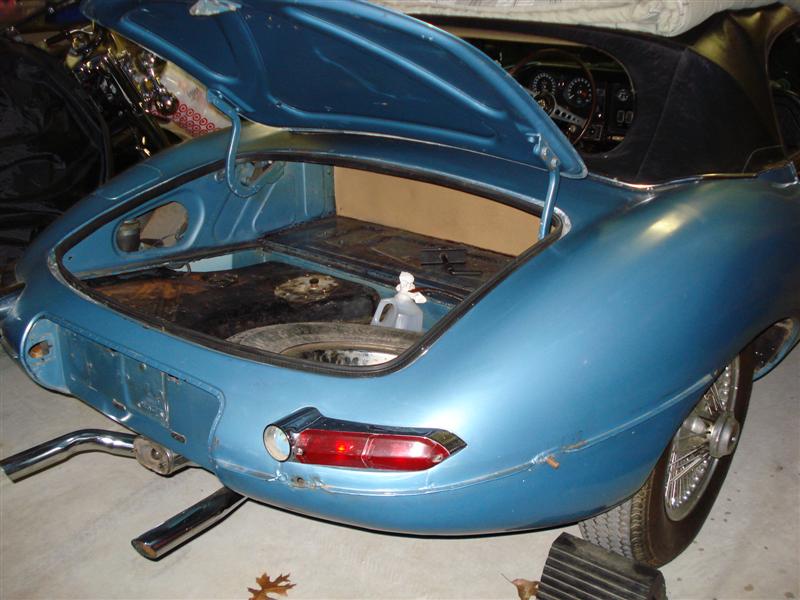
For extra measure, an in-line gas filter was installed.
**********************
Electrical Troubleshooting
Cranking the motor revealed no spark at the spark plugs. A session of electrical troubleshooting found the no-spark problem - a defective aftermarket electronic ignition unit someone had "upgraded" the car to.
Re-installing stock points and condenser solved that problem. The motor was now getting spark and fuel.
Check Timing
After removing the rocker covers, valve timing was checked and gaskets replaced. Both camshafts were inspected for wear and looked fine.
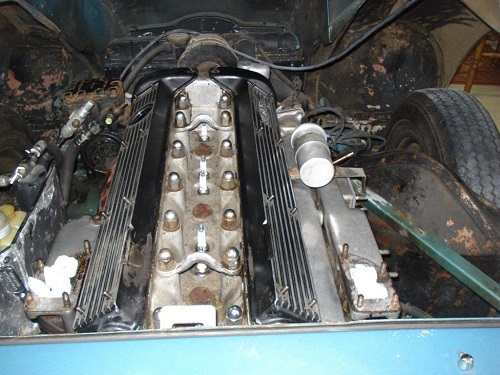
**********************
Starting The Engine
Nine months after the Jag was brought home, it was ready to be fired up. I pulled out the choke cable and turned the key. The engine sputtered. After the third try, the motor came to life.
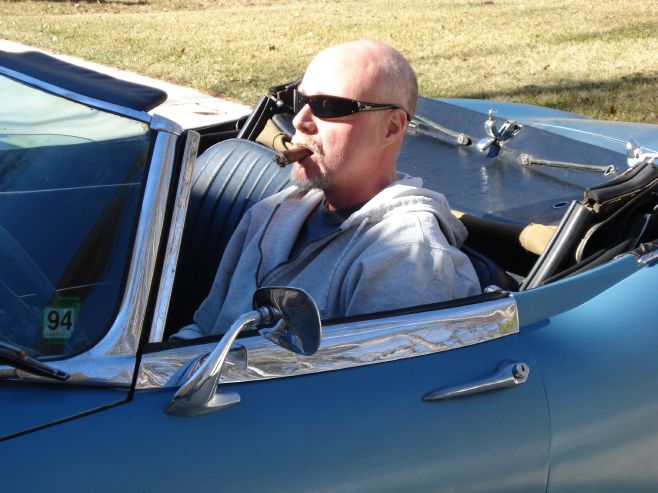
**********************
Working On British Cars
Here in America, there's always been myths and superstitions about old British sports cars. From my experiences, they're no harder (or easier) than working on any other car.
Whitworth Tools
Vintage Jaguars were assembled from the factory with Whitworth-sized nuts and bolts. These are often confused for, and not the same as, fractional or metric sizes. This is why (here in America) you'll see old British cars with rounded-off nuts and bolts.
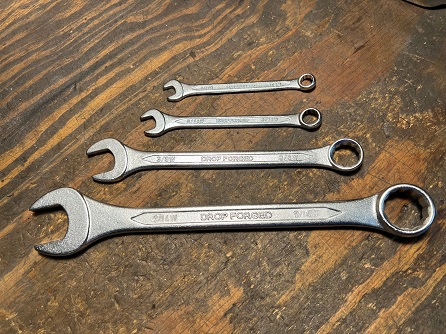
Read: What Are Whitworth Tools?
**********************
Related Articles: